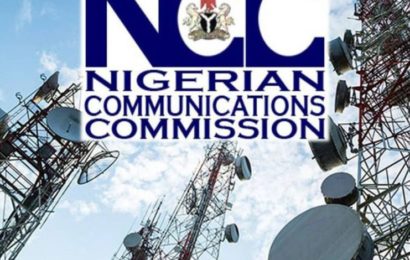
- Meets Stakeholders in Telcos
As a measure to reduce or totally eliminate grey markets in the nation’s telecoms industry, Nigeria Communications Commission (NCC)-the industry regulator is considering fresh policy for national/domestic and international traffic rates that may override the subsisting interconnect regime.
NCC has started consultation ahead with experts and industry stakeholders on the new policy. When enacted there are hopes that it will checkmate stunt growth in the nations telecommunication industry, block loopholes with which fraudsters are milking from the interconnect regime and quality of service delivery will improve among network operators
At the moment the industry is saturated with debts among operators. There are uses of telecommunications products or services with the intention of illegally acquiring money from, or failing to pay, among players in the system and the case appears heightened but obscure to network users who are bearing the brunt.
Interconnecting debt among telecommunication service providers, data service operators, content providers routed through choice network operators, date and content service provider have continued to inhibit healthy interconnecting relationship among network carriers and this has been identified as one of the reasons for poor qualitative services on voice and data network services in the country.
This, and other adjoining issues formed discuss at the stakeholders’ forum convened by the NCC that presented cost based study to review mobile voice termination rate for both domestic and international traffics.
Executive Vice Chairman; NCC, Professor Umar Danbatta said that the commission is now working to ensure sanity in the sector, especially with regards to consumer products from the network carriers with a fresh policy.
A comprehensive report of a seminal study undertaken by PriceWaterhouseCoopers for the telecommunication industry in Nigeria with a thematic focus on cost based determination of mobile voice termination rate, was presented to industry stakeholders at the Nigerian Communications Commission Head Office in Abuja, during the week.
The EVC remark was delivered by Miss Josephine Amuwa, Director Policy Competition and Economic Analysis with a call on stakeholders to supply industry statistical data promptly because of its centrality in the determination of appropriate interconnection termination rates.
Prof. Danbatta however, solicited assistance, understanding and collaboration to deliver on elucidated objectives on impeccable and functional interconnection regime toward enhancing healthy competition and efficiency in regulating the industry.
The imperative of the project evidently found expression in the exponential growth in the number of subscribers, as well as in the volume of traffic on the networks, which are both shaped by the dynamics of technologies, and the existential realities of the global financial markets.
Hence, Danbatta noted that NCC has a duty to ensure that interconnection services are fairly priced, non-discriminatory, and reflect the real cost of providing such services in the market.
The EVC said he was quite pleased that the study will among other benefits provide opportunity to thoroughly examine the emergence of grey market activities in the telecoms industry in Nigeria such as call refilling, call masking, and SIM-Box fraud following an interim International Termination Rate (ITR) for inbound international traffic that was introduced.
Call Refilling, according to Wikipedia, is a form of interconnect fraud in which one carrier tampers with CID (caller-ID) or ANI data to falsify the number from which a call originated before handing the call off to a competitor.
“Refilling and interconnect fraud briefly made headlines in the aftermath of the Worldcom financial troubles; the refilling scheme is based on a quirk in the system by which telcos bill each other – two calls to the same place may incur different costs because of differing displayed origin. A common calculation of payments between telcos calculates the percentage of the total distance over which each telco has carried one call to determine division of toll revenues for that call; refilling distorts data required to make these calculations”.
Call Masking one’s telephone number, on the other hand, is simply having the means to either disguise the telephone number or display it as a different number as is the case for many companies who use what are known as non-geographical numbers, while A SIM box fraud is a setup in which fraudsters install SIM boxes with multiple low-cost prepaid SIM cards.
The fraudster then can terminate international calls through local phone numbers in the respective country to make it appear as if the call is a local call. The regulators said they know this and would sanitise the breach with efficient policy.








